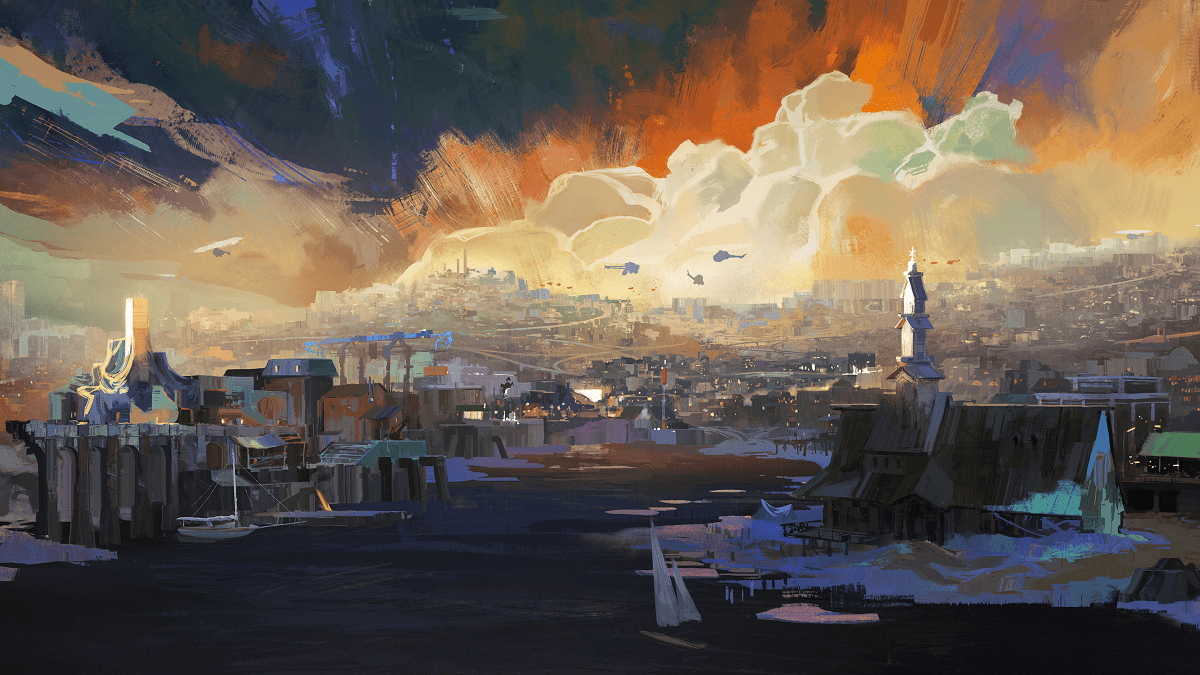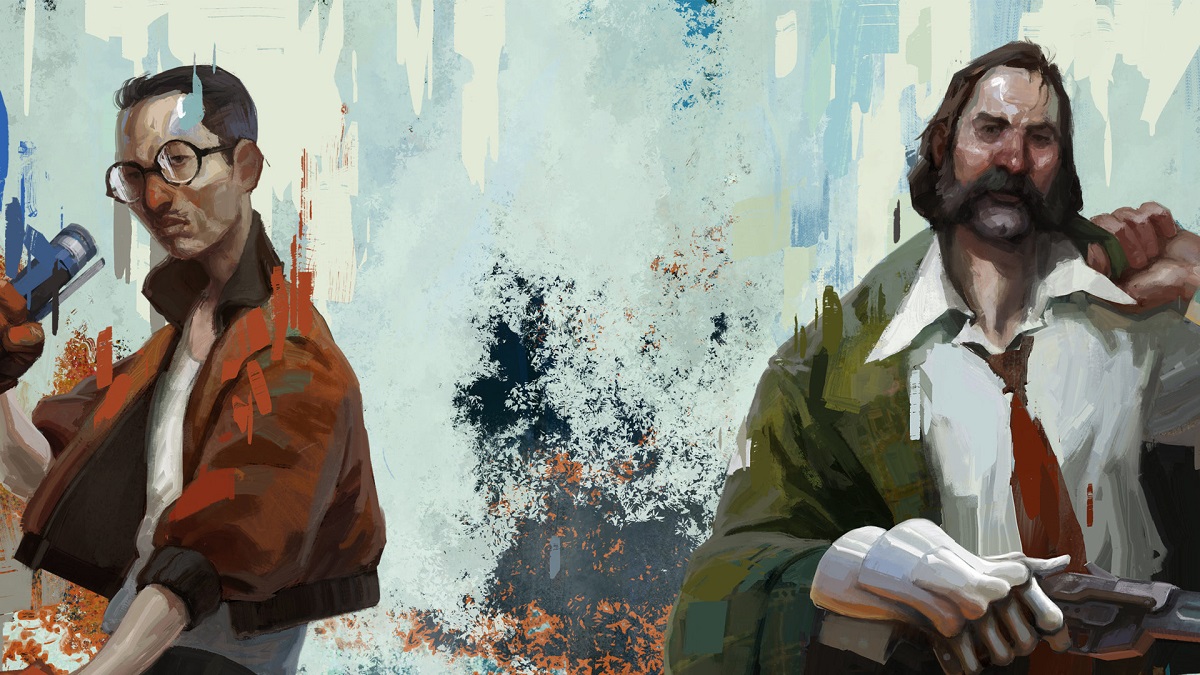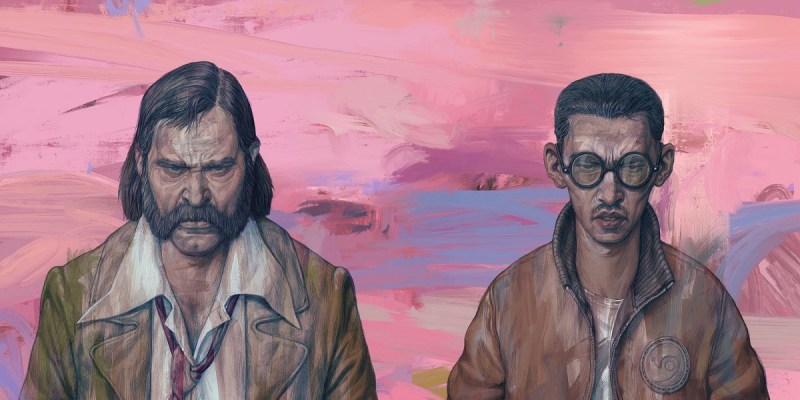Warning: The following article on why portrayals of everyday struggle in Disco Elysium hit home contains spoilers for the game and *mega depression,* Baby.
It’s all just evil apes dukin’ it out on a disco ball – our ball, full of strife and headache to feed the eternally insatiable void known as Survival.
Disco Elysium understands this everyday struggle humanity faces to be alive, more so than any other game I’ve ever played, and that’s low-key horrifying. For years, video games have been the height of escapism for me – yet I can’t help but acknowledge the beguiling charm and raw verbiage of Disco Elysium, trying to reflect our collective scars through its characters (and even objects).
People remember Disco Elysium for its knack for egging you on to be bizarre to common sense, the protagonist Harry’s brain and feelings a cacophony of feral imagination and sensations steering you. But frankly, my interactions across its pallid world shook me more: Aimlessness, depression, and all the boogeymen synonymous with human angst clawing at the edges of my escape.
Lilienne was the first character in Disco Elysium to cause me to pause and deeply mull over what many of us feel daily. In a desolate fishing village with a sword at her hip, the fisherwoman seemed to grow weary the more we talked, the cruel human truth barring fangs within her words.
“People imagine picking up and finding *something better* is an easy solution,” she told me while overlooking her yellow-bellied skipper by the makeshift jetty. “But how is that supposed to work when all your time and energy goes to staying alive? You have almost nothing to set aside to actually fight your way out.”
Related: Disco Elysium Collage Mode Lets You Create Your Own Zany Moments

The die was already cast. Probably before you were born or when you made your first mistake. Something better can be fluffy words. When it leaves your lips, the phrase feels nice and snug. I’ve used the words countless times. The grass has to be greener somewhere else – I would remind myself – but maybe I’m putting all my time and energy into something I won’t ever be able to fight. As Harry, you’ll change clothes to beef up his stats, trying to “game the system” in Disco Elysium to succeed in dice rolls, and we’re no different.
Disco Elysium illustrates everyday human struggle as trekking up a hill so high that you don’t think you’ll reach the top. As demoralizing as that feels, you find satisfaction in the march like Lilienne. She has found peace in not pursuing something better: Catching plentiful fish and selling them to get by with her kids. It’s not defeat, simply an awareness of what’s available and making the best of what’s there to beat Survival.
I’ve indulged in pushing too hard and tearing myself up over where I should be after graduating from university, hoping my writing proves I’m worth hiring and falling into bad health habits. But as of late, I’ve stepped back. Disco Elysium has helped me grasp that I should be more concerned with peace; this machine called Life won’t ever get easier. It’s okay to only worry about tomorrow and not where you’re “supposed” to be in ten years.
Finding that clarity manifested in the little parts of Disco Elysium, where unexpected thought bubbles appeared around Harry’s head and when the drunk cop interacted with objects. We’re always caught in the mouth of “what’s next” and “I should be doing this” at every minute of the day, but Disco Elysium rejects the normalcy of Life.
Yes, you’re a detective in Martinaise trying to solve a murder case. And yes, Harry’s sensible partner, Kim, often puts you back on track to this goal no matter how outlandish you get. However, the RPG encourages you to be a rebel and unorthodox to enjoy the ride.

Caress a trashcan to scrap together what little mental strength you can muster, rifle through books to bask in the act of taking things slow, nerd out with Kim about his sporty vehicle. Stop, breathe in. Our daily challenges can be crushing, especially when going through a rough patch like Harry is in the game, but that shouldn’t stop us from carving out some joy in the mundane.
The RPG’s attempt to portray struggles associated with the human journey hit home, even when it brushes against subjects unknown to me. My soul stirs – which I’m sure others feel while playing – as I’m ripped out of Martinaise to ponder my existence.
Conversations get heavy, fixated on us and what it means to be us. And through it all, the game feels strangely euphoric despite its rawness. It has that dewy-eyed hope that happiness can come from anywhere, and leaning into whatever comes can keep us going.
